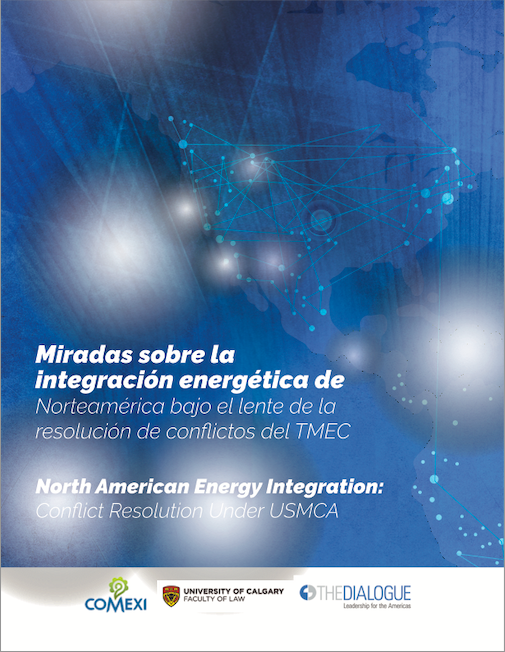Mexico: How Far Have its Institutions Really Come?
The question remains if Mexico has achieved a degree of institutional development consistent with its participation in those organizations.
Amidst rapid globalization, Canada, Mexico, and the United States have prioritized strengthening their regional ties in the context of rapid geopolitical changes. While past decades were marked by advancements in security and energy integration in North America, recently, the trilateral agenda has focused on advancing toward a low-carbon economy and strengthening supply chains (nearshoring).
However, the efforts of President Andrés Manuel López Obrador to reverse the energy transition and liberalization of the Mexican energy sector have called into question the consolidation of the integration process. The laws and regulations promoted by the current administration seem to violate the legal framework codified in the Mexico-United States- Canada Agreement (USMCA), leading Canada and the United States to request consultations with Mexico under the dispute resolution chapter of the Agreement. The reforms and resulting controversy have raised doubts about the future of regional energy and climate policy.
Over a year later, negotiators have not been able to reach a deal. If disagreements persist, the Office of the United States Trade Representative (USTR) may request an independent dispute settlement panel under the Unites States Mexico Canada Agreement (USMCA), a move which could result in billions of dollars in retaliatory tariffs on Mexican goods.
In this dire scenario, the Mexican Council on Foreign Relations (COMEXI), the Inter-American Dialogue, and the University of Calgary interviewed experts on trade from each of the three countries to develop an analysis of the implications of the dispute, its possible outcomes, and possible routes to its de-escalation. Their viewpoints were then published in a report.
The question remains if Mexico has achieved a degree of institutional development consistent with its participation in those organizations.
Focusing on transnational crime is a top priority of the Obama administration’s policy in Latin America.
Despite reports in recent months that Mexican manufacturing is experiencing a resurgence, Mexico’s industrial sector faces tremendous challenges.
